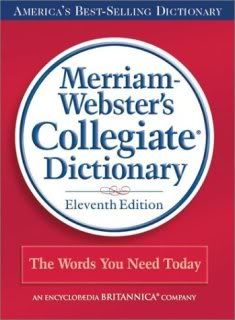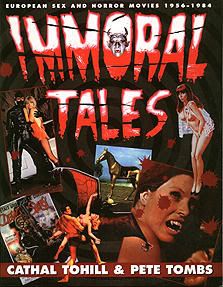
I have a new project I'm going to start working on in the New Year:
The Five-Foot Shelf of Sex Books.
You may have heard of the
Harvard Five-Foot Shelf. It's a collection of fifty-one books put together by the president of Harvard University in 1909 that defined the canon of American academia for most of the 20th century. But whereas Harvard's list is a bunch of boring books by dead white men, our fifty-one books will be the hottest and most informative books on sex.
What inspired me to undertake this project? Let me tell you.
Yesterday I went to a large, independent, suburban bookstore. I was looking for a book by Dan Savage to give to someone as a late Christmas gift so I looked in the bookstore's small sex section. I did not find the book I was looking for. As a matter of fact, I didn't find any books by Savage, any books by Tristan Taormino, any books by Betty Dodson, any books by Jack Morin, any books by Easton and Hardy. I didn't find what I consider to be the best sex guide on the market:
The Guide to Getting It On, by Paul Joannides. I didn't find the top-rate runners-up in that category,
Good Vibrations Guide to Sex or
Sex for Dummies. I
did find one book only by Violet Blue, Dr. Ruth Westheimer and Susie Bright. Jay Wiseman's
SM 101 was there, as were three of Rachel Kramer Bussel's themed erotica anthologies from Cleis. Mostly, I found books on how men can have multiple orgasms, how women can have orgasms at all, 365 sex tips (many of which seemed either obvious or ineffective), 365 sexual positions (many of which seemed to be the same), and an enormous number of Penthouse Letters collections. The inescapable conclusion: I am clearly not reading the same books about sex that most Americans are.
At this point, you're probably cutting off my rant to say, "And this
surprises you?!?"
No, it doesn't surprise me. I was utterly unsurprised when I failed to find what I was looking for. That's what got me started thinking.
Why wasn't I surprised that some of the greatest sex writers were missing or under-represented at an otherwise well-rounded independent bookstore? If I went into that bookstore's literature section and failed to find any books by Twain, Hemingway, Joyce, Austen, Proust, Faulkner and Tolstoy, I would march up to the information desk and ask them why they didn't have those authors' books. Experimentally, I asked about Dan Savage at Information. "Oh, is he that Savage Nation guy?" they asked me. No, that's Michael Savage. They didn't know who Dan Savage is.
While we expect and require a mainstream bookstore to have great works by classic authors, no one expects and requires them to have reliable, entertaining and well-written books about sex. I started wondering, wouldn't it be a great thing if there was a list of key sex books that all bookstores should carry in their sexuality section? Wouldn't it be great if patrons started asking, "Here's a list of books, why don't you carry them?" Wouldn't it be great if there were a website that scores bookstores based on what percentage of the books on the list they carry?
Well, I've decided to start working on it. I'm hardly a crusader or an activist, but what the hell, right? Somebody's gotta do it. If somebody wants to jump in and help me, or just steal my idea outright, they're welcome to. But in the meantime I'm going to give it a shot.
STEP ONE: Making the List.Where on Earth to begin?
I'm not going to pretend to be qualified to choose, but that's okay because the best way to begin is the ask for help.
If you are reading this, I want you to write me a comment. Tell me what book or books you think should be on the list.
A few guidelines: It seems to me such a list should represent a variety of sex books. I think the classics (Sade, Kinsey, Westheimer) should be represented, but they shouldn't exclude modern books the might be more accurate or relevant. I think books about safer sex, birth control and STIs should be featured but they shouldn't be allowed to dominate the list and create the overall impression that sex is extremely perilous. I think a variety of sexual practices should be represented: there should be something for straight, gay, lesbian, bi and trans readers. There should be something for people into sadomasochism, bondage, dominent/submissive relationships, common fetishes. There should be informational books, literature, history and erotica represented. And -- because I'm an English nerd -- I think we should favor books that are well-written, captivating and fun to read over books that just present information with no sense of style.
I await your replies.


